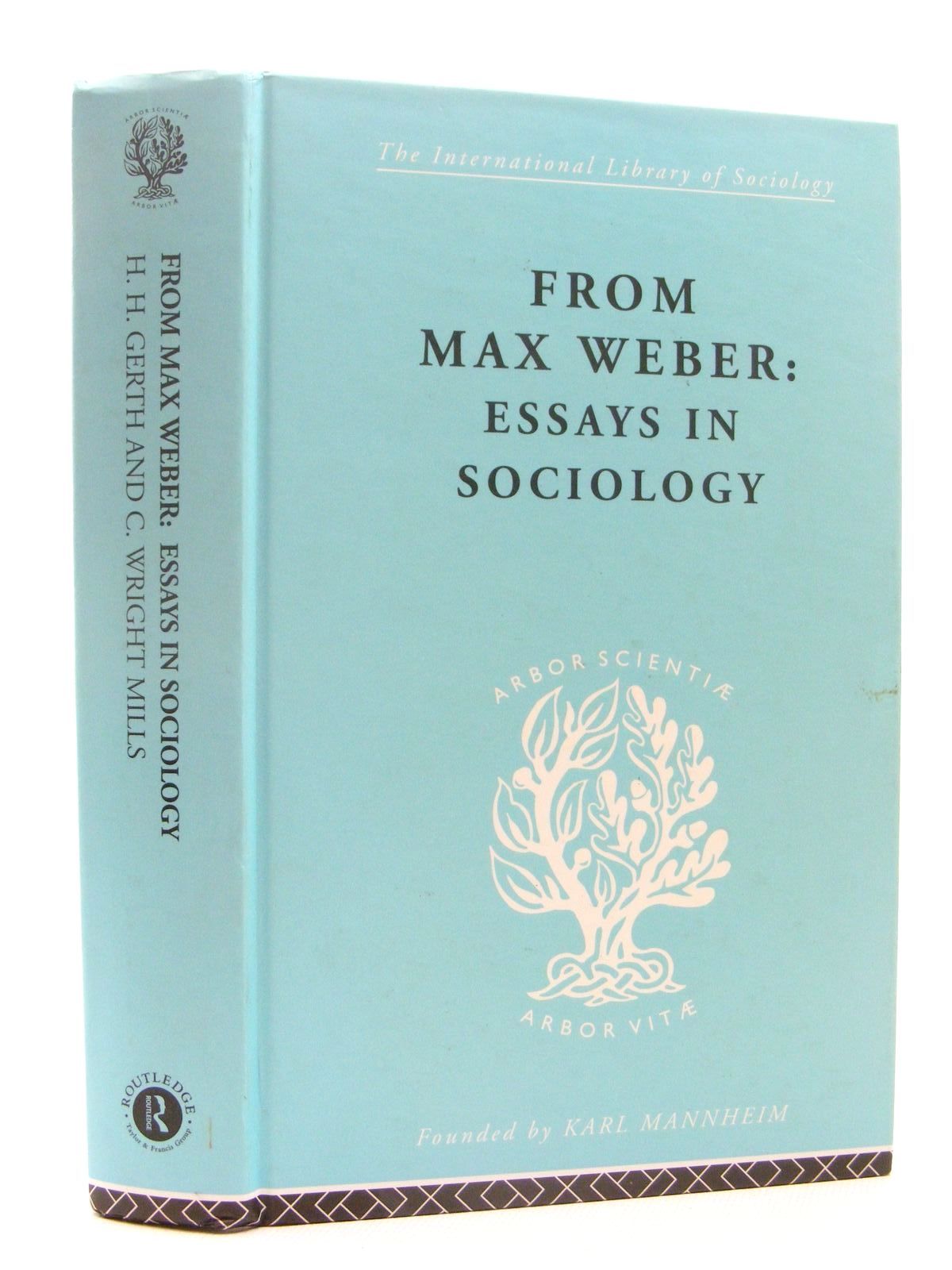Imagine a world where every action, every decision, is driven by a cold, calculating rationality. A world where the pursuit of power and the relentless march of progress overshadow the human element. This is the chilling, yet strangely captivating, terrain explored by Max Weber, one of the most influential sociologists of all time. His theories, often referred to as Weberian Sociology, serve as a powerful lens through which we can examine the intricate workings of society, its intricate power structures, and the profound impact they have on our lives.

Image: www.stellabooks.com
Weber’s work revolutionized our understanding of social institutions, exploring their origins, their functions, and their complex connections to the individual. His insights, spanning from the rise of capitalism to the nature of bureaucracy, continue to resonate today, offering a framework for understanding the complexities of modern life. Join us as we delve into the depths of Weberian Sociology, unraveling its captivating insights and exploring its enduring impact on our understanding of the human condition.
The Roots of Weberian Thought: A Journey into Modernity
Max Weber emerged as a towering figure in the early 20th century, a time of profound societal transformation. Industrialization was sweeping across the globe, disrupting traditional ways of life and ushering in a new era of urban growth, technological innovation, and capitalist expansion. This rapid change fueled Weber’s intellectual curiosity, prompting him to delve into the complexities of modern society and its impact on the individual.
Central to Weber’s thought is the concept of “rationalization,” a process he saw as the driving force behind the modern world. He believed that rational thought, characterized by logic, efficiency, and a focus on measurable outcomes, was gradually replacing traditional values and beliefs. This transition, he argued, was profoundly shaping social institutions, from the rise of bureaucratic organizations to the rise of capitalism.
Weber’s views on bureaucracy, in particular, remain highly relevant today. In his seminal work, “Economy and Society,” he meticulously analyzed the structure and functioning of bureaucracies, highlighting their distinct features: specialization of labor, hierarchical structure, impersonal rules and regulations, and a focus on efficiency over personal relationships. While these features offer a degree of order and efficiency, Weber cautioned against their potential to dehumanize individuals, leading to a phenomenon he termed the “Iron Cage of Bureaucracy.”
Capitalism’s Shadow: The Pursuit of Power and Profit
Another crucial element of Weber’s work lies in his analysis of capitalism, a system he saw both as a product of rationalization and a driving force for social change. He argued that the pursuit of profit, alongside the spirit of competition and individual achievement, were central to the rise of capitalism. However, he also recognized the inherent contradictions within this economic system, highlighting the potential for exploitation and inequality.
Weber’s investigation into the rise of capitalism led him to the concept of the “Protestant Ethic,” a groundbreaking insight that connected religious values with the growth of capitalism. He argued that the Protestant work ethic, characterized by hard work, thrift, and a sense of calling, laid the foundation for the accumulation of wealth and the values of capitalism. This concept, while controversial, generated significant debate and continues to be a subject of ongoing scholarly discussion.
Beyond the Rational: Exploring the Role of Values and Morality
While Weber emphasized the role of rationality and its impact on society, he also recognized the importance of values, beliefs, and morality in shaping human behavior. He believed that individual actions were driven not only by rational considerations but also by subjective values, often rooted in religious or cultural traditions. This concept led him to explore the “spirit of capitalism,” highlighting the moral and ethical dimensions of economic activity.
Weber’s work on religion is a testament to his multifaceted perspective. He saw religion not merely as a set of beliefs but as a powerful force shaping social structures, cultural values, and even the course of history. His analyses of diverse religious traditions, including Confucianism, Hinduism, and Judaism, illuminated their unique contributions to the cultural and economic landscapes of various societies.

Image: www.wikiwand.com
A Legacy of Insight: Applying Weberian Sociology Today
Weber’s work resonates deeply with contemporary society, offering a powerful framework for understanding the complex challenges we face in the 21st century. His insights on bureaucracy, capitalism, and the power of values remain highly relevant, providing us valuable tools to navigate the intricacies of modern life.
For instance, Weber’s exploration of bureaucracy’s potential for dehumanization offers a timely reminder of the importance of maintaining a human dimension in organizational structures. His analysis of the Protestant Ethic also provides insights into the role of individual values in economic activity, highlighting the importance of ethical considerations in business practices.
Weber Sociology
Unveiling the Hidden Structures: Finding Meaning in the Modern World
Weber’s legacy goes beyond mere academic study. His ideas empower us to question, analyze, and critically engage with the world around us. By understanding the inner workings of our societal structures, we can gain a greater sense of agency and navigate the complexities of modern life with greater understanding and purpose.
The exploration of Weberian Sociology is a journey into the human condition, a quest to uncover the hidden motivations, beliefs, and structures that shape our world. It is a journey that demands analytical rigor, a willingness to question assumptions, and a steadfast commitment to understanding the forces that bind us – both individually and collectively.
So, join us in this ongoing exploration, as we unravel the complexities of Weberian Sociology and continue to seek meaning in the ever-changing tapestry of modern life.

:max_bytes(150000):strip_icc()/OrangeGloEverydayHardwoodFloorCleaner22oz-5a95a4dd04d1cf0037cbd59c.jpeg?w=740&resize=740,414&ssl=1)




